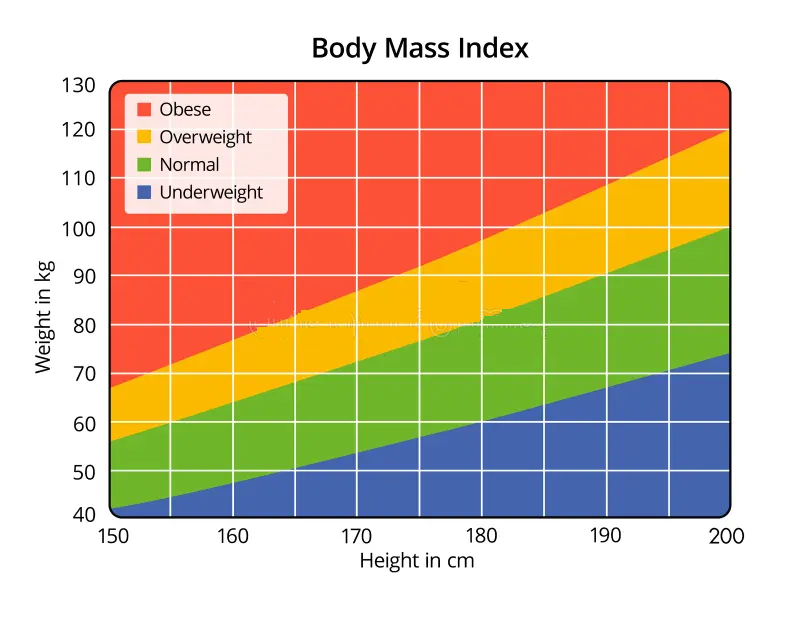Are you within a healthy weight range for your height?
Key takeaways
- BMI is calculated using your weight and height.
- Along with other factors like your blood pressure and cholesterol level, BMI can help estimate your risk of a heart attack or stroke.
- BMI has several limitations though and isn’t accurate in some people.
- Your GP and an Accredited Practising Dietitian can help you to achieve and maintain a healthy weight.
I am using metric

What is BMI?
Body mass index, or BMI, gives an indication of your body size.
BMI is calculated using your weight and height (your weight divided by your height squared). Along with several other factors, like your blood pressure and cholesterol, BMI can help estimate your risk of a heart attack or stroke.
It’s important to remember that BMI is not the most reliable measure of whether your weight is in a healthy range for your height. It’s not a good overall indicator of how healthy you are, and doesn’t take into account important factors like age, gender and body composition (fat, muscle and bone).
For the following groups of people, BMI is not an accurate measure:
- Some ethnic groups including Aboriginal and/or Torres Strait Islander Peoples, and people of Asian/South Asian descent.
- Women who are pregnant.
- People 19 years of age or younger.
- Athletes or people who have a lot of muscle.
- People with a condition that affects the amount of fluid in their body (for example, heart failure).
Waist measurement (waist circumference) is also important to consider alongside your BMI. Waist measurement can help to assess risk by measuring the amount of fat carried around your middle. It has some limitations though. For example, it is not accurate in women who are pregnant, children, and people with an enlarged tummy due to a medical condition.
Following a heart-healthy eating pattern and being physically active can help you achieve and maintain a healthy weight.
You might also like to speak to your GP, an Accredited Practising Dietitian or an Aboriginal and/or Torres Strait Islander Health Practitioner for individual advice.





